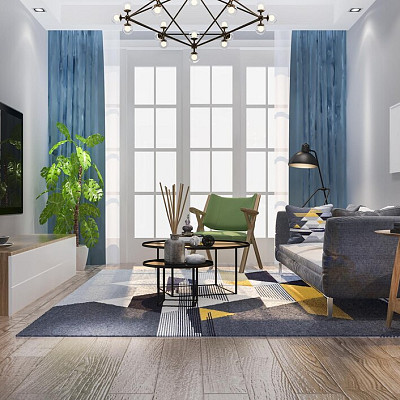A New Apartment in Phuket: Calculating the Cost and Related Expenses
One of the key concerns when purchasing real estate is understanding the total amount you will have to pay. Buyers are often worried about hidden taxes and fees. This is crucial information for those planning to live in their new apartment and for investors who want to forecast their potential returns more accurately.

CONTENT:
- The purchase price of a new apartment in Phuket
- The cost of maintaining an apartment in Thailand
- The total cost of purchasing property in Thailand
The Purchase Price of a New Apartment in Phuket
The price of an apartment varies based on factors like location, construction year, floor level, view, layout, and more. When purchasing in a new development, buyers may also receive a discount from the developer. This has been more common over the past year due to the global decrease in purchasing power caused by the pandemic.
Phuket is one of the more expensive regions in Thailand, as it is a popular destination for foreigners. The cost of living is generally higher here compared to the mainland, partly because most goods need to be transported by sea. As of today, a small studio apartment of around 30 m² in a new building can be purchased for about 3,000,000 baht. Similar units in older buildings may cost around 1,500,000 baht. For off-plan units, developers often offer installment plans or other incentives to ease the payment process. Many large companies in Phuket have Russian-speaking staff, which simplifies communication, as government officials rarely speak foreign languages, and all legal documents are in Thai.
Before the deal is finalized, you must sign a reservation agreement, which requires a deposit of around 10% of the property value to remove the unit from the market.
During the purchase process, you will encounter various taxes and fees that are shared between the buyer and seller. Since property transactions in Thailand can be structured as long-term leases (leasehold) or outright purchases (freehold), the taxes for each type differ. For long-term leaseholds, the buyer pays a rental registration tax of 1% of the property value, while a 2% transfer tax applies to freehold purchases. The seller is responsible for paying stamp duty and real estate agent fees.
Hiring a local lawyer is recommended to ensure that the property is free of any legal issues. The cost of legal services is approximately 40,000 baht.
New buildings in Thailand typically come with complete finishes, and often include basic furniture and appliances, so there’s no need to spend extra money on these items.
The Cost of Maintaining an Apartment in Thailand
In Thailand, property tax was first introduced in 2019. Due to the COVID-19 crisis, the government implemented a 90% reduction in property tax from 2020. However, this relief is not being extended beyond 2022.
Residential properties valued at less than 25,000,000 baht are taxed at 0.03% of their appraised value. Properties worth between 25,000,000 and 50,000,000 baht are taxed at 0.05%. For properties valued over 50,000,000 baht, the owner must pay an annual tax of 0.1% of the cadastral value, which is generally lower than the actual purchase price.
When moving into a new apartment, a one-time contribution of around 20,000 baht is required for the Housing Fund or Sinking Fund. This fee applies only to new buildings and is used for maintenance of common areas. Additionally, the buyer must install water and electricity meters, costing around 20,000 baht.
The management company typically charges around 20,000 baht annually for services, including security, cleaning, parking, and maintenance of shared amenities such as swimming pools and gardens. The exact amount may vary depending on the services provided and the building’s age.
Utility bills are paid monthly based on meter readings. Electricity costs 3 baht per kilowatt, and water is priced at 35 baht per cubic meter. Internet services typically cost 1,000 baht per month. For example, if you use 500 kilowatts of electricity and 10 cubic meters of water per month, your annual utility costs will be around 35,000 baht. This amount varies depending on the number of occupants and their actual consumption. Air conditioning, essential in Thailand’s hot climate, accounts for the largest part of electricity usage. For rented apartments, tenants usually cover utility costs.
It’s advisable to insure your property against damage, especially if you plan to rent it out. Property insurance generally costs about 2,000 baht per year.




